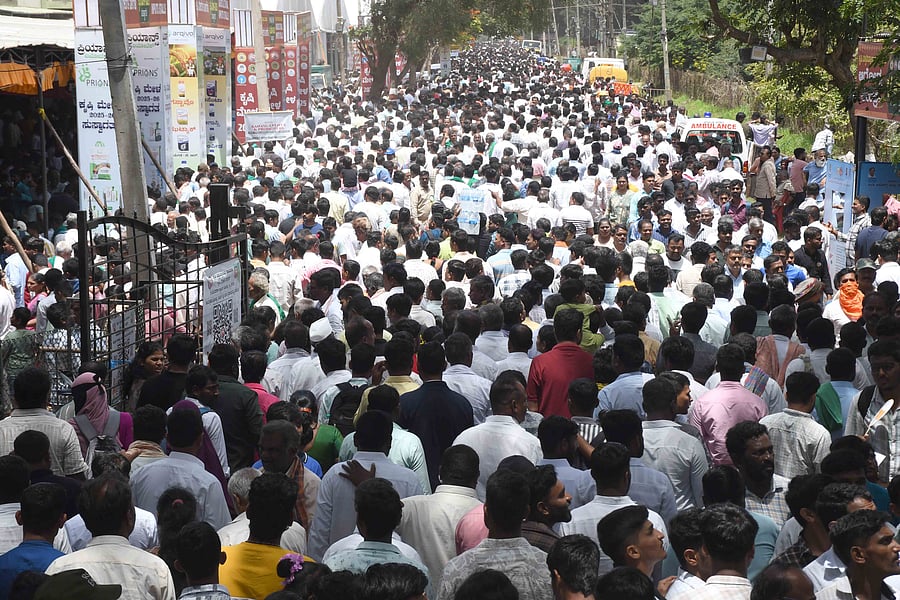
Sea of farmers and general public attend the Krishi Mela on Sunday.
DH Photo
Dharwad/DHNS: Erratic rains or drought due to climate change, pest and disease outbreaks, rising input costs, and price volatility in markets have been affecting farmers. To face these challenges, emphasis must be laid on water conservation, crop diversification, value addition, and exports today, said Governor Thaawar Chand Gehlot.
He was speaking after inaugurating Seed Mela, organised as part of the four-day Krishi Mela by the University of Agricultural Sciences in Dharwad on Sunday.
For the development of Indian agriculture and allied sectors, to make farming a profitable venture and to increase the income of farmers, the Centre and the State governments formulated several schemes which farmers should utilise,” he said.
He said there is a need for youth and women to come forward with entrepreneurship and innovation in the agricultural sector. Agri-startups, processing units, agri-tourism, and organic farming are sectors that are attracting the younger generation. When women actively participate in agriculture, both family income and nutrition improve, he stated.
He noted that agriculture has made a vital contribution to the Indian economy. "We have moved from traditional farming to modern agriculture. Yet, despite this, the productivity of some crops still remains below the global average,” he observed.
The Governor said India’s seed industry is a mix of large, medium, and small seed companies in both the public and private sectors. Valued at 6.3 billion dollars, the Indian seed sector is the fifth largest in the world, with a 6% share in the global market. What matters most is how quality, certified, and locally regulated seeds reach the farmers. The purpose of the ‘Seed Mela’ is to enable farmer to directly interact with scientists and reliable producers, learn about new varieties, and choose seeds suitable for their farming, he said.
"Agriculture is the strong pillar of the Atmanirbhar Bharat. When farmers become self-reliant, the country too becomes self-reliant. For this, quality seeds, advanced technology, fair pricing, and direct market access are extremely important,” he underlined.
On horticulture, he said, “Fruits and flowers not only add taste, colour, and fragrance to our plates and lives, but they are also a powerful tool to increase farmers’ income. With schemes such as One District–One Product being implemented, fruit and flower production has the potential to connect farmers to global markets.
Commending the University, he said the university’s research in seed improvement, pest and disease control, and farm mechanisation has been inspiring not only for Karnataka but for all of India. Wheat varieties developed by the university are in demand in Indonesia, and pulses varieties are in demand in African countries, he added.
Vice-Chancellor P L Patil also spoke.
